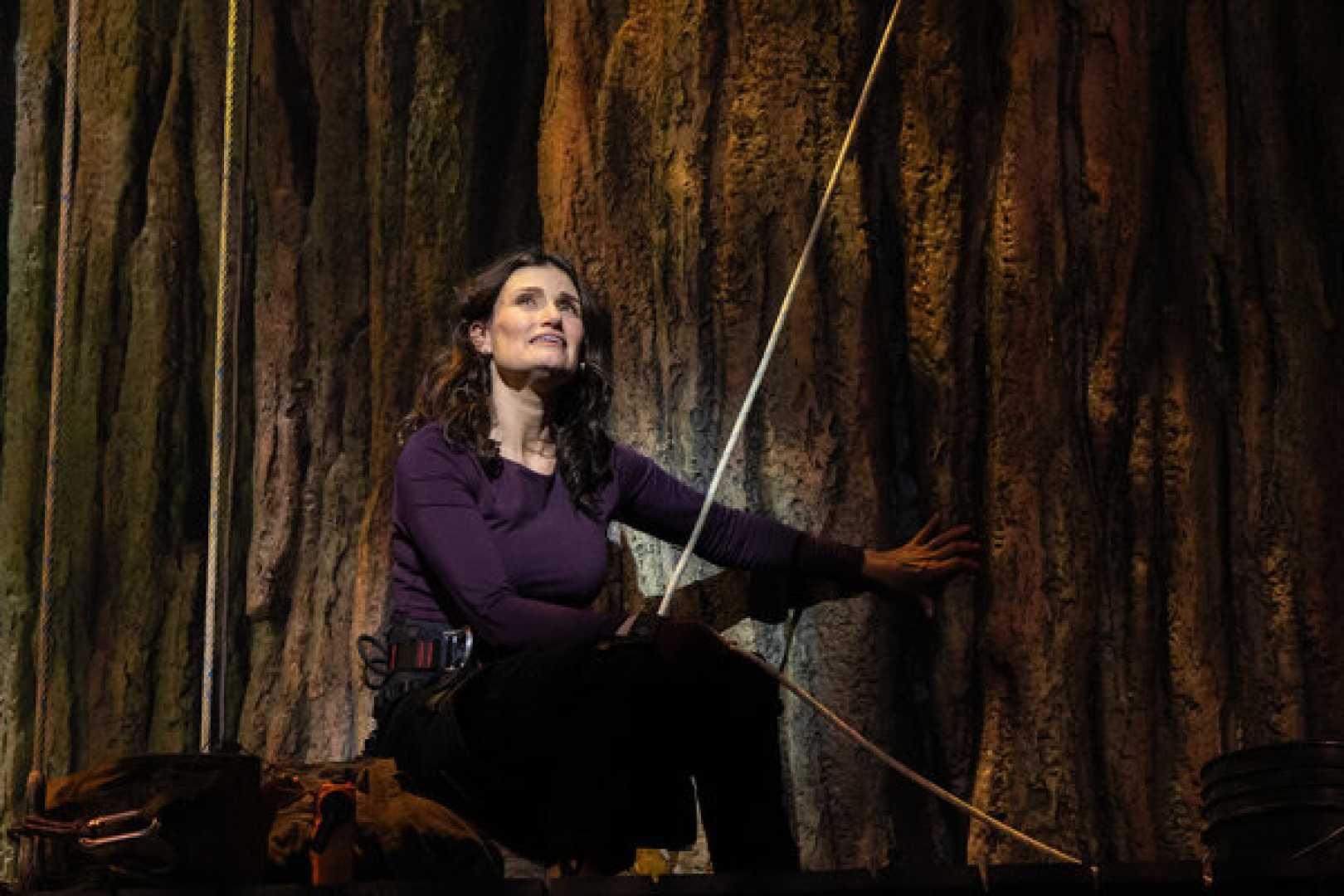Entertainment
Idina Menzel’s ‘Redwood’ Examines Grief Amid Nature’s Grandeur

NEW YORK, April 7, 2025 — Idina Menzel has made a triumphant return to Broadway with her latest show, “Redwood,” where she plays Jesse, a woman grappling with the devastating loss of her son due to a fentanyl overdose. As Jesse seeks refuge in the towering California redwoods, the musical explores themes of grief, nature, and the complexities of human responsibility.
Menzel, co-creator of the production, showcases her vocal prowess by performing 13 of the show’s 17 songs, immersing the audience in Jesse’s journey as she navigates her emotional turmoil. The character flees to the natural sanctuary of the redwood forest, seeking solace in isolation while her wife, Mel, yearns for open discussion about their shared loss.
In an impactful moment, Jesse encounters a group of researchers, portrayed by Becca and Finn, who are scaling a redwood tree. She implores them to sleep in the treetops, revealing her desire to escape her grief rather than confront it. In the song “Great Escape,” she expresses this longing, singing, “Cause from here, I can see it clearly / It’s nature’s remedy / Far away from the pain / I’ll stay / and I’ll make my great escape.” This highlights a problematic narrative that romanticizes nature as a haven from human struggles.
Reviewers are raising concerns about the show’s portrayal of human-nature relationships. Lynn Keller‘s book, “Recomposing Ecopoetics,” critiques this perspective, stating, “its dualistic vision of humans as separate from nature poses a serious threat to responsible environmentalism because it does not encourage people to live sustainably and respectfully in nature.” This theme echoes through Jesse’s journey as she often overlooks her impact on the environment.
Despite the musical’s stunning visuals and powerful performances, it prompts reflections on the broader implications of its narrative choices. The researchers’ presence serves as a reminder that there is no untouched space in an era defined by human impact. Finn’s song, “Big Tree Religion,” raises an intriguing question: if the redwoods were instead a deity, would the plot remain unchanged? This comparison suggests that the narrative may inadvertently absolve humanity of its crucial environmental responsibilities.
In the musical’s climax, Jesse receives a vision from her son, enabling her to confront her loss and reconcile with Mel. While this mystical moment provides dramatic closure, it raises concerns about how such resolutions overshadow the importance of addressing real-world issues regarding grief and environmental stewardship.
Ultimately, “Redwood” serves as a reminder of Menzel’s vocal talents while leaving audiences to ponder the deeper implications of the story. The production suggests a possible disconnection between emotional healing and the vital role humans play in protecting the natural world. While it captures the beauty of grief, it also risks perpetuating a narrative that sidelines our responsibilities to the environment.












